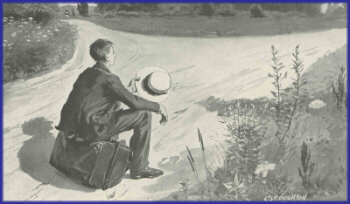 A couple of things came to my attention today from completely independent sources that appear to me to be connected. The first is a short article in the August16th issue of The Economist about experiments connecting physical contact in the form of massages with generosity. The second was a phone call from a friend telling me about an article. From seeing the abstract he concluded "your work should be cited prominently." It wasn't which seemed ironic since the article itself was promoting less self-dealing by law professors. This was annoying but has happened to every law professors and is probably easily off set by the number of times we are cited when our work or ideas are only remotely related to the subject or are a friend just does a favor.
A couple of things came to my attention today from completely independent sources that appear to me to be connected. The first is a short article in the August16th issue of The Economist about experiments connecting physical contact in the form of massages with generosity. The second was a phone call from a friend telling me about an article. From seeing the abstract he concluded "your work should be cited prominently." It wasn't which seemed ironic since the article itself was promoting less self-dealing by law professors. This was annoying but has happened to every law professors and is probably easily off set by the number of times we are cited when our work or ideas are only remotely related to the subject or are a friend just does a favor.What these two generosity incidents made me think of more generally is the number of times we claim or want to be one way but our actions demonstrate the opposite.
Generosity is good example. I have yet to find any correlation between those who teach in area that stress empathy, "win-win," outcomes and human relationships and personal generosity. In fact, at my School I suspect the most personally giving person in real life situations would be classified by many as "tough" and maybe even intolerant or unenlightened.
I do not want to overstate this. My faculty is brimming with kind people but I also expect that most faculties exhibit a great deal of facial generosity -- kindness that is expected to accrue to the benefit of the giver and make him or her at the very least "look good." This conditional generosity is really nothing more than a trade.
This opposite-of-what-you claim-to-be pattern is reflected in two other ways. One is that the first people to express outrage at supposedly bad conduct are also the first to exaggerate it and gossip about it. And, then there is the top not-being-who-you-claim-be-category -- professionalism. Read all you want on the AALS and AAUP websites about professionalism and ethics and then compare it to your faculty. Most of them will have high ideals but the ones who talk professionalism the most are often just the opposite.
This is actually all uplifting. What it means at one level is that people know better and if they could learn to exercise counter-preferential choices they could be the people they claim to be.
No comments:
Post a Comment